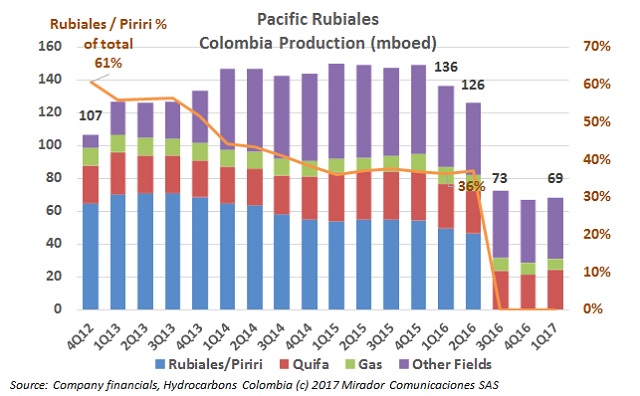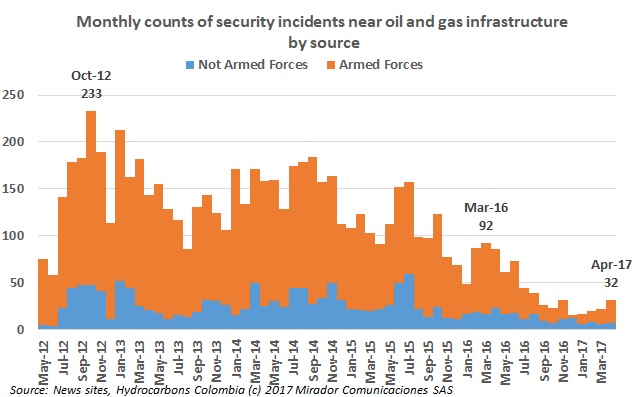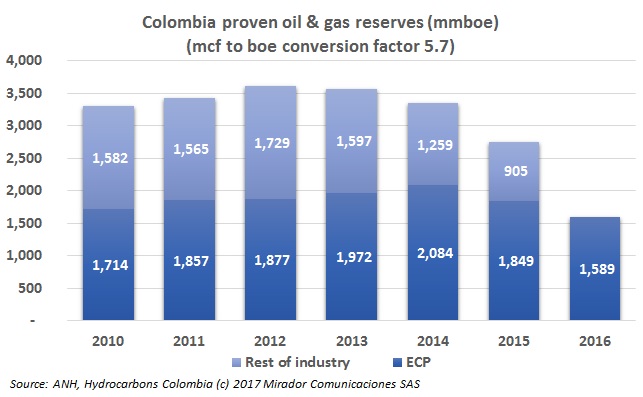The controversy about possible modifications to the General System of Royalties (SGR) continues. While academics and regional authorities reject the idea of allocating part of the royalties’ budget to finance ‘peace projects’, the government says that the proposal is in line with what the country is going through. These and other stories in our Royalties periodic summary.
Representatives of the 13 countries of the Operational Network for Regional Cooperation of Maritime Authorities of the Americas (Rocram) participated in a workshop about the implementation of anti-pollution treaties.

Pacific Exploration & Production (TSX: PEN) reported its 1Q17 results highlighting that it is on the right path to improve the firm´s performance. Pacific net production increased compared to previous quarter.
Ecopetrol (NYSE:EC) announced “the largest gas discovery found in the last 28 years in Colombian territory,” but the announcement just might be larger than the importance of the discovery itself.
The history of the mining and oil industry in Colombia took a turn after the popular consultation that took place in Cajamarca last month. Industry expert Francisco Miranda analyzed the situation.
The Secretary of Finance of Barrancabermeja in an inspection process found some irregularities in Ecopetrol’stax return (NYSE: EC) during 2014 and 2015.

Total incidents near oil and gas infrastructure were up sharply last month (from 22 to 32) but that was mostly due to Armed Forces activity.
The Union said that Attorney General Nestor Humberto Martinez’s findings in the Reficar case are only a part of what it was actually lost in the refinery’s construction.

Last year was a difficult one for the industry in general. The Ministry of Mines and Energy (MinMinas) will announce the country’s reserves in coming days but the outlook is not positive.